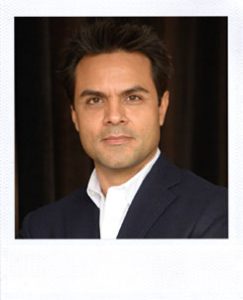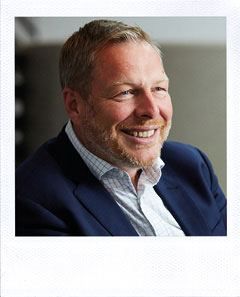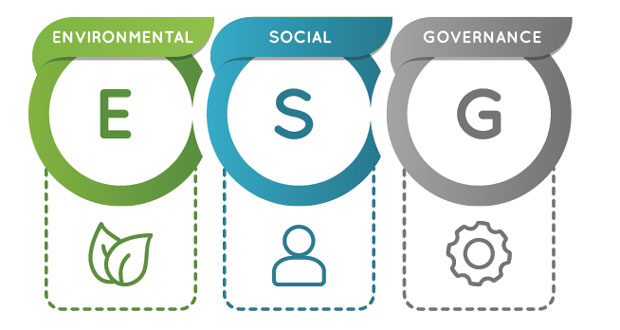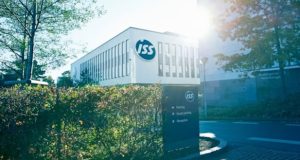 CLEANING SECTOR LEADER’S VIEW
CLEANING SECTOR LEADER’S VIEW
DOMINIC PONNIAH,
CEO, CLEANOLOGY
Business has the power to do good. Every company measures its financial health, but the health – and impact – of a business goes far beyond the balance sheet.
While the scale of Environmental, Social and Governance (ESG) criteria can appear daunting, it helps to break things down. The recipe to meaningful change is to monitor, and to follow a policy of continuous improvement. This is also the key to certification to environmental management systems like ISO 14001.
A robust environmental policy will include the obvious elements like office recycling and energy use but genuine ESG strategies should also consider staff wellbeing. In an industry not known for high pay, to improving pay. Sixteen of our top 20 clients are signed up to the Real Living Wage, and we actively promote the scheme to new business and existing clients, as well as investing in PR to raise awareness.
We are accredited as a Recognised Service Provider (RSP) by the Living Wage Foundation, and recently joined the RSP Leadership Group. In 2021, we won the Living Wage Foundation’s Company of the Year award. This shows our staff that we care, and are actively working to make a difference.
With one fifth of the population living in poverty, it is also important to look beyond our own four walls. The Hygiene Bank, supports the one in three people who has had to go without hygiene essentials. Recent appeals generated a tonne of hygiene products.
ESG is becoming increasingly more important and we can expect to see it incorporated in many more tenders and requests in the future. However, we need to remember that, in the same way that as individuals we lead full, complex lives, our companies also span different areas. And with the right planning, we can make business a force for good.
 WELLBEING SUSTAINABILITY AND ASSURANCE DIRECTOR’S VIEW
WELLBEING SUSTAINABILITY AND ASSURANCE DIRECTOR’S VIEW
JONATHAN GAWTHROP,
EXECUTIVE DIRECTOR EMCOR UK
ESG is incredibly broad so one immediate challenge is the definition. When one organisation talks about ESG it might be focusing on the route to net zero; another might be concentrating on social value.
A good anchor point for all businesses are the UN’s 17 Global Sustainability Goals. They encompass everything from health and wellbeing to gender equality, and clean energy to sustainable communities. The goals are a blueprint for running an organisation with purpose and a great frame of reference.
Not every organisation can touch all the goals, but all organisations can touch some of them. The challenge for business leaders here, and the opportunity, is to identify which goals are relevant. It will be much more impactful to work on the achievable goals rather than trying to meet too many.
Resources are another challenge – both people and finances. A successful ESG strategy requires an individual or a group that can take the company on the journey. There needs to be a level of seniority so that the strategy has an influence within every facet of an organisation. This can be easier at large FM companies but tougher at SMEs. Business in the Community can be a great help here.
There must be overall corporate ownership of activities so that it doesn’t just become the responsibility of one person or group. However, it can also be impactful to make sure that all employees have some kind of ownership or buy-in, perhaps at a local level.
People care about ESG. The trick is to find the balance between corporate ownership while ensuring that all employees have a stake.
The FM relationship model presents yet another challenge and opportunity. Our sector relies heavily on supply chains – in some cases, up to 50 per cent of work within a contract might be carried out by partners. It’s vital that we keep a constant dialogue with our customers to ensure that we choose partners with the right ESG credentials. This links closely to Global Goal 17, which calls for strengthening partnerships for sustainable development.
As we work with more supply partners that are leading in ESG, we can learn from them and apply this to other contracts. Some of the customers that we work with are quite mature in their ESG strategies; others not so much. We can learn from the mature businesses and educate the others. Not only will this help FM companies improve their ESG work, but it can also be a selling point into new business.
While ESG is about running a business with strong ethics and purpose, there are of course financial considerations. We are currently experiencing a demand for talent in the sector and younger generations want to work for an employer with a demonstrable purpose and credentials in ESG.
For those at the start of their ESG journey, my advice is to review the UN Sustainability Goals, determine who can take responsibility for your strategy, and give them the resources to achieve their goals.
 INTEGRATED FM PROVIDER’S VIEW
INTEGRATED FM PROVIDER’S VIEW
MAURO ORTELLI,
MANAGING DIRECTOR OF 14FORTY
The ESG journey, does not come without its challenges.
Incorporating new technology across the industry, although often appearing costly, is key to progressing sustainably.
In FM, some of the biggest industry-wide difficulties come from managing buildings with changing headcounts. This has especially been the case since the pandemic with many companies now opting for hybrid working systems. Ordering the correct quantity of food and supplies to avoid excess waste can be complicated when the number of people attending a workplace is unpredictable. To mitigate this, our teams continually analyse past food waste against sales and uses this data to re-balance menus. We are also promoting the use of pre-ordering technology for which we have a proprietary mobile app to facilitate.
With catering playing a key role in soft FM services, providing planet-conscious menus is crucial. Our new menu concept, ‘Plenty’, is designed to reduce food waste by using a root-to-tip and nose-to-tail approach to cooking. Our chefs use perfectly edible parts of vegetables or animals that would normally be thrown away, to create recipes such as broths, soups and sauces with those often discarded items.
At Compass our eco-labelling project was the first of its kind, labelling dishes A-E, highlighting to consumers which meals have a higher (E) or lower (A) environmental impact. This allows consumers to make conscientious choices for the environment, just as they do with the reference intake labelling for nutrients. We’re also proud to be able to say that 84 per cent of food in our workplace restaurants is sourced and produced in the UK, with a company-wide ban on air-freighted produce.
In 2022, 45 per cent of our menus will be made up completely of plant-based recipes in a bid to inspire healthier eating and to reduce our carbon footprint.





